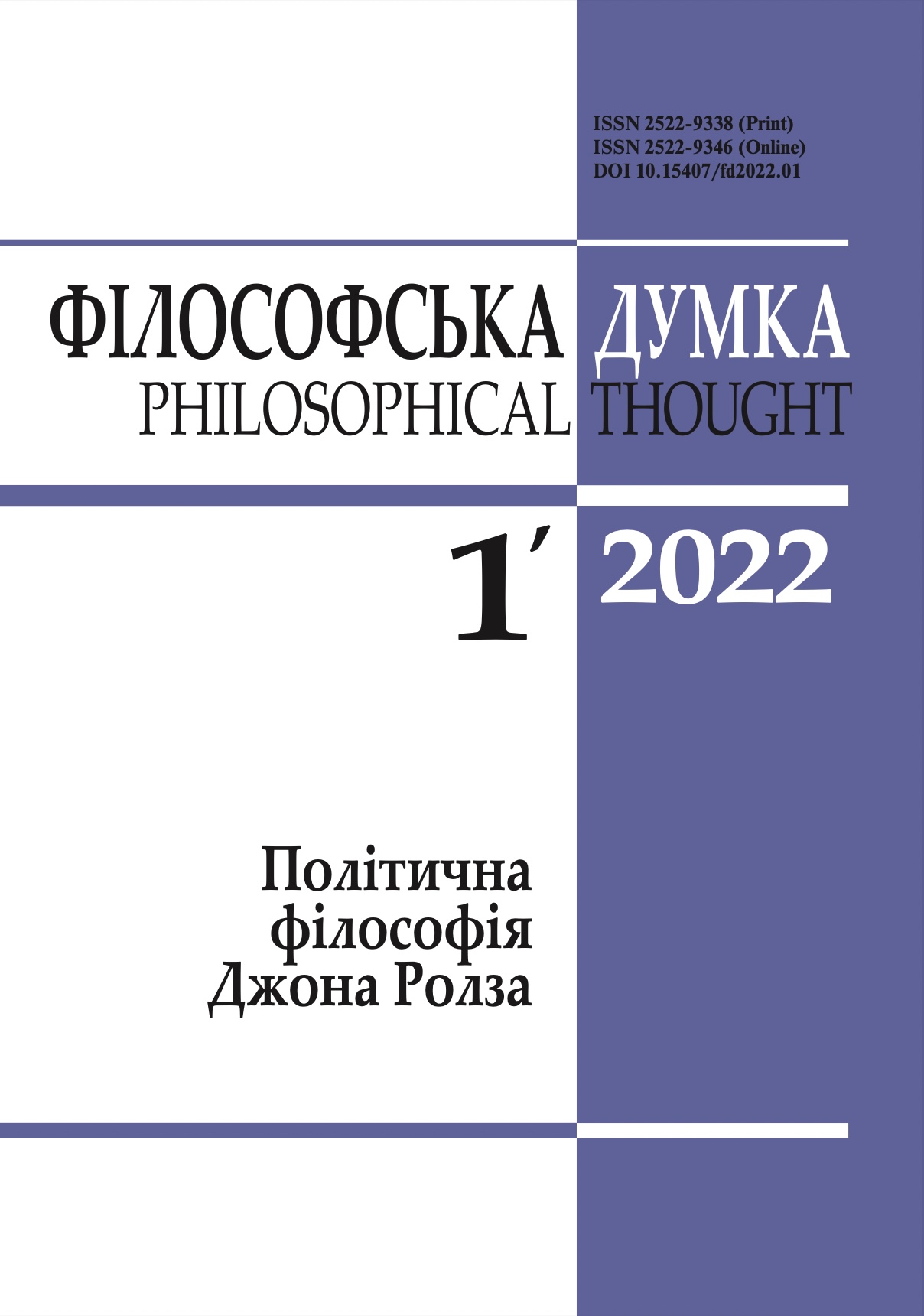АНТИКРИПКЕАНСЬКІ ІНТУЇЦІЇ: КОНЦЕПТУАЛІЗМ VERSUS ЕСЕНЦІАЛІЗМ (ENG)
ЛОГІКА, МЕТОДОЛОГІЯ ТА ФІЛОСОФІЯ НАУКИ
DOI:
https://doi.org/10.15407/fd2022.01.098Ключові слова:
загальна назва, природний вид, концептуалізм, дескриптивізм, кластерна теорія, есенціалізм, референціяАнотація
У статті обговорюються критичні аргументи Сола Крипке стосовно теорії референції загальних назв, яку він називав дескриптивізмом, та міркування, запропоновані ним на користь своєї есенціалістської кавзально-історичної теорії референції природно-видових термінів. Докладно пояснено альтернатуву концептуалізму та есенціалізму стосовно референції загальних термінів. Обґрунтовано думку, що більшість інтуїцій, на які спираються аргументи Крипке, є дуже контроверсійними, а головні приклади, які він використовував для підтримки й пояснення своїх поглядів, (такі, як приклади з китами й рибою, водою та H20, золотом та піритом заліза, тиграми та єдинорогами) не демонструють переваг есенціалізму над концептуалізмом. Більше того, ці приклади можливо модифікувати так, що у перспективі цих модифікацій крипкеанське есенціалістське тлумачення виявиться неприродним та неправдоподібним, тоді як певна форма концептуалізму (кластерна теорія референції) виглядатиме цілком прийнятною.
Посилання
Burge, T. (1979). Individualism and the Mental. Midwest Studies in Philosophy, 4, 73-121.
https://doi.org/10.1111/j.1475-4975.1979.tb00374.x
Burge, T. (2007). Foundations of Mind: Philosophical Essays. Vol. 2. Oxford, New York: Oxford University Press.
Chalmers, D. (1996). The Conscious Mind. Oxford, New York: Oxford University Press.
Chalmers, D. (2006). The Foundations of Two-Dimensional Semantics. In: M. Garcia-Carpintero, J. Macia (Eds.), Two-Dimensional Semantics: Foundations and Applications (pp. 55-140). Oxford, New York: Oxford University Press.
Chalmers, D. (2010). The Two-Dimensional Argument Against Materialism. In: D. Chalmers, The Character of Consciousness (pp. 141-205). Oxford, New York: Oxford University Press.
https://doi.org/10.1093/acprof:oso/9780195311105.003.0006
Dupré, J. (1981). Natural Kinds and Biological Taxa. Philosophical Review, 90, 66-90.
https://doi.org/10.2307/2184373
Hayek, F. (1952). The Counter-Revolution of Science. Studies in the Abuse of Reason. Glencoe, Illinois: The Free Press.
Jackson, F. (2004). Why We Need A-Intensions. Philosophical Studies, 118, 257-277.
https://doi.org/10.1023/B:PHIL.0000019548.04704.69
Kipper, J. (2012). A Two-Dimensionalist Guide to Conceptual Analysis. Ontos Verlag.
https://doi.org/10.1515/9783110322705
Kripke, S. (1972). Naming and Necessity. In: D. Davidson, G. Harman (Eds.), Semantics of Natural Language (pp. 253-355). Dordrecht: Reidel.
https://doi.org/10.1007/978-94-010-2557-7_9
Nelson, J. S. (2006). Fishes of the World (4th ed.). John Wiley & Sons.
Plato (1892). Phaedrus. In: B. Jowett (Transl.), Dialogues of Plato. Vol. 1 (pp. 391-489). Oxford, New York: Oxford University Press.
Putnam, H. (1973). Meaning and Reference. The Journal of Philosophy, 70(19), 699-711.
https://doi.org/10.2307/2025079
Putnam, H. (1975). The Meaning of "Meaning". Minnesota Studies in the Philosophy of Science, 7, 131-193.
https://doi.org/10.1017/CBO9780511625251.014
Rickard, D. (2015). Pyrite: A Natural History of Fool's Gold. Oxford, New York: Oxford University Press.
##submission.downloads##
-
PDF (English)
Завантажень: 236
Опубліковано
Як цитувати
Номер
Розділ
Ліцензія
Автори, які публікуються у цьому журналі, згодні з наступними умовами:
- Автори зберігають авторське право і надають журналу право першої публікації.
- Автори можуть укладати окремі, додаткові договірні угоди з неексклюзивного поширення опублікованої журналом версії статті (наприклад, розмістити її в інститутському репозиторії або опублікувати її в книзі), з визнанням її первісної публікації в цьому журналі.
- Авторам дозволяється і рекомендується розміщувати їхню роботу в Інтернеті (наприклад, в інституційних сховищах або на їхньому сайті) до і під час процесу подачі, так як це може привести до продуктивних обмінів, а також скорішого і ширшого цитування опублікованих робіт (див. вплив відкритого доступу).


